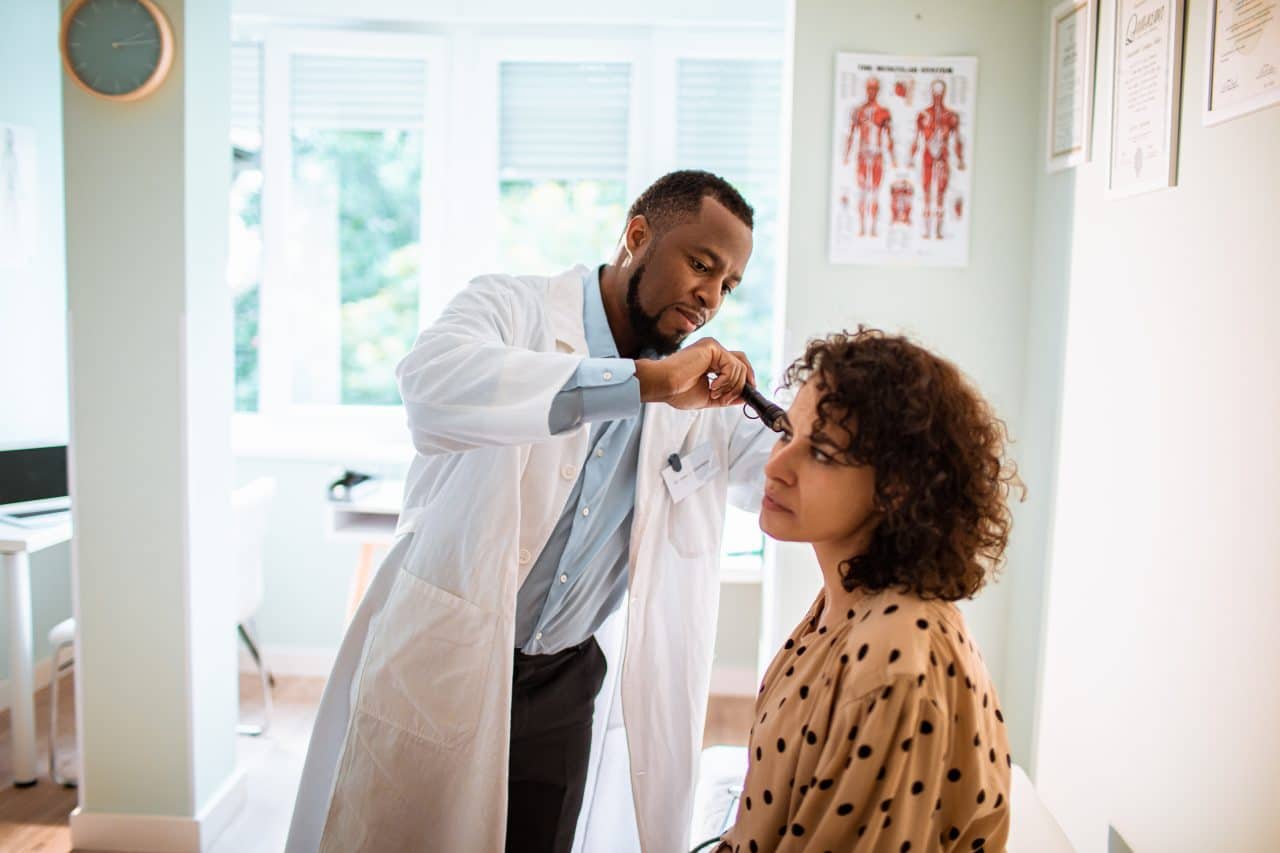There are many reasons you or your child may to visit an ear, nose and throat (ENT) physician, also known as an otolaryngologist. Below we review four of the most common ear, nose and throat related conditions, their symptoms and treatments.
1. Ear Infections

Ear infections occur when fluid becomes trapped in the middle ear, allowing bacteria to grow. Normally, the Eustachian tubes, which connect the middle ear to the back of the throat, allow fluid to drain. However, ear infections can result when the Eustachian tubes become blocked due to inflammation caused by a cold or allergies.
Symptoms of an ear infection include:
- Pain and pressure in the ears
- Fluid drainage
- Trouble hearing
- Loss of balance
- Fever
- Nausea and vomiting
At first, the doctor may take a wait-and-see approach. If the infection does not clear up on its own after a few days or symptoms are severe, antibiotics may be prescribed.
2. Strep Throat
Strep throat occurs when the throat and surrounding structures become infected with a family of bacteria called Streptococci.
Symptoms of strep throat include:
- Sore throat
- Trouble swallowing
- Enlarged tonsils and lymph nodes
- White patches on the tonsils and throat
- Fever
- Body aches
- Fatigue
Strep throat is treated with antibiotics, usually penicillin or amoxicillin.
3. Sinusitis
Sinusitis, also known as a sinus infection, occurs when the sinuses become inundated with bacteria. Bacteria can become trapped due to inflammation following a cold or allergies. Sinusitis may be acute or chronic; chronic sinusitis means your symptoms persist 12 weeks or longer.
Symptoms of sinusitis include:
- Sinus pain and pressure
- Headache
- Cough
- Runny or stuffy nose
- Fever
- Fatigue
- Toothache
Sinusitis may be treated with saline nasal washes, over-the-counter decongestants from Fort Wayne Custom RX or antibiotics. For chronic sinusitis, surgery may be necessary to treat the current infection and prevent future infections.
4. Sleep Apnea
Sleep apnea is a sleep disorder characterized by pauses in breathing during sleep. It occurs when the muscles and tissues in the back of the throat collapse into the airway.
Symptoms of sleep apnea include:
- Waking in the middle of the night.
- Gasping or choking noises during sleep.
- Dry mouth and throat.
- Drowsiness during the day.
- Headache.
- Mood swings.
- Depression.
Sleep apnea can be treated with lifestyle changes, oral appliances, continuous positive airway pressure (CPAP) therapy and surgery. For more information about common ENT conditions or to schedule an appointment with an expert, call Ear, Nose & Throat Associates, P.C. today.